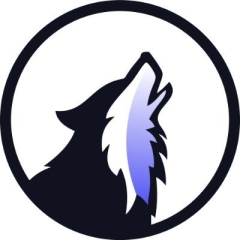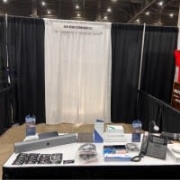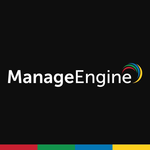What is our primary use case?
We use Vicarius vRx as a vulnerability detection or overall vulnerability management system. Their agents discover and report vulnerabilities on Windows endpoints, and their solution assists in patching endpoints.
Our previous solution was doing well with vulnerability detection and reporting. However, we wanted to try an agent-based patching system. That particular product would have doubled the cost. My supervisor discovered Vicarius, and he wanted to try a POC. So, the primary reason was that we wanted to include the ability to patch endpoints based on vulnerability discovery.
How has it helped my organization?
Vicarius is valuable because it combines vulnerability discovery, prioritization, and remediation into a single platform. Traditionally, these functions are separated and often managed by different teams, such as security teams handling discovery and infrastructure teams responsible for patching. This division requires significant coordination and communication regarding vulnerabilities, necessary patches, and prioritization. Vicarius streamlines this process by directly linking identified vulnerabilities to required patches, enhancing efficiency.
We have automated some of the patching using vRx's ability to perform that function. My infrastructure team handles the patching side, and we have shared access to the platform. I know that at least ten different tasks are automated, but I'm unsure if they've progressed even more. The gathering of patches that have been released, staged, and ready to go has been automated. So, all patches are already available, and we have some pre-done schedules that will automatically launch and start patching at predetermined times without further intervention.
The automation process has saved at least 30 percent of our manual tasks.
It takes two to three months to get a good overall vulnerability picture. The deployment takes a little while and some time to get used to the reporting. However, we saw decent data within two months and started asking questions about reporting and numbers. After three months, the overall dataset was good. Even now, we're still working on reporting, asking questions of Vicarius and trying to tweak some of the different reporting features.
Vicarius has helped us reduce our mean time to remediate vulnerabilities. Because we can examine endpoints, the best use case I can think of as an example for shortening remediation time is when we start spot-checking and looking at the dashboard for endpoints that, for some reason, have a high count of vulnerabilities or a much higher count of more severe vulnerabilities, we can immediately go into patching from that console and start pushing things out. So it helps us to immediately take care of delinquent workstations, for example, those that have not been connected or a person just keeps leaving their workstation off during prescribed patching periods. Overall, I would say remediation time is 25 to 30 percent shorter. The biggest impact is on case-by-case patching. We follow a regular patching cadence. We're a Microsoft shop, so the largest number of patches we have to apply, like most others, is on Patch Tuesdays when Microsoft releases stuff. Since that's on a regular cadence, I wouldn't say that Vicarius has greatly affected that. But there's a great improvement when we perform cleanup work and try to catch all the outliers and delinquent machines.
What is most valuable?
Agent-based scanning is the most valuable feature. Previously reliant on network scanning, we faced limitations when devices were offline or remote, such as laptops. This inconsistency in scan results is resolved through agent-based scanning, which provides more consistent data collection as long as the device has internet access. Additionally, integrated patching is highly desirable. While we have other software deployment and patching systems, their reliance on network connections creates similar inconsistencies in reaching all endpoints at scheduled times. Agent-based patching significantly improves this process.
What needs improvement?
Vicarius is an agent-based platform focusing on Windows, Linux, and Mac endpoints. While we know they're developing traditional network scanning capabilities and plan to demonstrate them soon, this feature is currently missing. Unlike previous vulnerability management systems that relied on network scanning appliances to discover and assess endpoints, Vicarius' agent-based approach is less effective for devices like switches, routers, and printers where agent installation is impractical. Although they suggest using Nmap as a workaround, we find it insufficient. We eagerly await the implementation of network scanning to manage vulnerabilities across our entire infrastructure comprehensively.
For how long have I used the solution?
I have been using Vicarius vRx for almost seven months.
We began using vRx around mid-January as a proof of concept and have since progressed to full production implementation. I'm uncertain if we are officially considered a 100 percent customer, as my supervisor and his manager have been negotiating the contract with Vicarius. There's some ambiguity about whether all our data remains on US soil or if it's stored in other countries, so the contract finalization is still pending. Nevertheless, we are currently utilizing vRx in our production processes.
What do I think about the stability of the solution?
We have not experienced any issues with the agents on the endpoints. The portal has been very reliable. It has not gone down, and we have not known of any instance where we couldn't get in to see and view our data. So, we have not experienced any noteworthy issues at all at this point.
What do I think about the scalability of the solution?
Our shop currently supports approximately 800 endpoints, and the system handles this load without issue. Given the system's cloud-based architecture and demonstrated ability to scale quickly, I anticipate that increasing resources on the cloud side would easily accommodate a more extensive deployment if necessary.
How are customer service and support?
At this time, I rely more on opening tickets, and they do have online chat support. Their answers have been good, and the responses have been very quick. I find the support staff helpful, especially when I ask for a call so we can work together on the system. The response has always been excellent and efficient.
How would you rate customer service and support?
Which solution did I use previously and why did I switch?
We previously used QualysGuard Express. We switched to Vicarius because we saw the opportunity to go with a product that had a similar pricing range, but at the same time, it included the patching ability.
How was the initial setup?
Deployment was very easy. We did not encounter any issues with installing agents on endpoints.
For us, deployment was a collaborative effort, particularly in vulnerability identification, research, and patching. While we've divided these tasks into two teams, it's feasible that a single individual could handle vulnerability analysis, research, and reporting. However, given our additional responsibilities, a two-person team currently offers greater efficiency. Ultimately, the feasibility of a one-person approach post-deployment depends on the organization's size and complexity.
We initially started with a small test group of about twenty workstations to gather preliminary information. This was essentially a proof of concept or evaluation phase. Once the decision was made to proceed, we successfully deployed agents to all endpoints within a month. In total, the evaluation and full deployment process took one to two months.
What about the implementation team?
We implemented Vicarius with the guidance of vRx, but it was not complex.
What's my experience with pricing, setup cost, and licensing?
Vicarius' pricing was reasonable compared to the other systems we evaluated.
Which other solutions did I evaluate?
Before selecting Vicarius, we evaluated two other solutions, including Rapid7.
What other advice do I have?
I would rate Vicarius vRx eight out of ten. We need Vicarius to implement the network scanning site.
Vicarius is still a relatively new system, so its content will likely improve. While I find user communities less helpful than technical support knowledge bases when working with any product or system, Vicarius has been okay. However, I rely more on their technical support for my needed information.
We have not yet implemented the patchless protection feature, as other systems also offer it. We are exercising caution and selectively choosing which vulnerabilities warrant this resource-intensive solution. Our decision will depend on the severity of the vulnerability and the priority of addressing it without a traditional patch. Until then, we have not actively engaged with patchless protection.
I can't say that Vicarius saved us a lot of time on patching. Our previous patch deployment system was also very good at getting patches ready and having everything set to go. The biggest difference between the two is that one is agent-based, and the other is not. So, we're not as dependent on a patching window anymore.
I've never used integrated patching since, in our eyes, it was not affordable. I don't know how good the other patching solutions are. I do like Vicarius' reporting better. The dashboard right out of the package is a little more understandable. Strangely, that dashboard information is not always very helpful in every vulnerability system I've worked with. Vicarius has been a bit more clear, and maybe it's just because I like to see certain kinds of numbers. Vicarius offers additional reporting solutions to enhance what it provides through its portal. They provide a Linux-based reporting server that we can put on prem that ingests all the vulnerability information from our portal and helps provide additional reporting. From that, I can export Excel sheets, which makes certain tasks easier, such as analyzing numbers and getting detailed information.
The system itself has not required much maintenance. It automatically updates agents, so there's not much to do to maintain it. It's more about managing the reporting and patching processes.
Given the pricing, the cost of acquiring both vulnerability management and patching capabilities would be comparable to purchasing vulnerability management alone for many equivalent systems. However, the added benefit of simultaneous patching is significant. While it doesn't need to be a primary patching tool, having a secondary option is valuable. To accurately compare options, I would inquire about the nature of the customer's current software deployment and patching system: is it agent-based or network-based? Similarly, if the system is not agent-based, it is still effective. Adding agent-based patching would enhance their ability to address outdated systems promptly. Considering Vicarius's pricing, it's a worthwhile investment regardless of existing patch management solutions. The integration with vulnerability discovery is highly beneficial, supplementing any existing patching capabilities.
Which deployment model are you using for this solution?
Private Cloud
Disclosure: PeerSpot contacted the reviewer to collect the review and to validate authenticity. The reviewer was referred by the vendor, but the review is not subject to editing or approval by the vendor.













